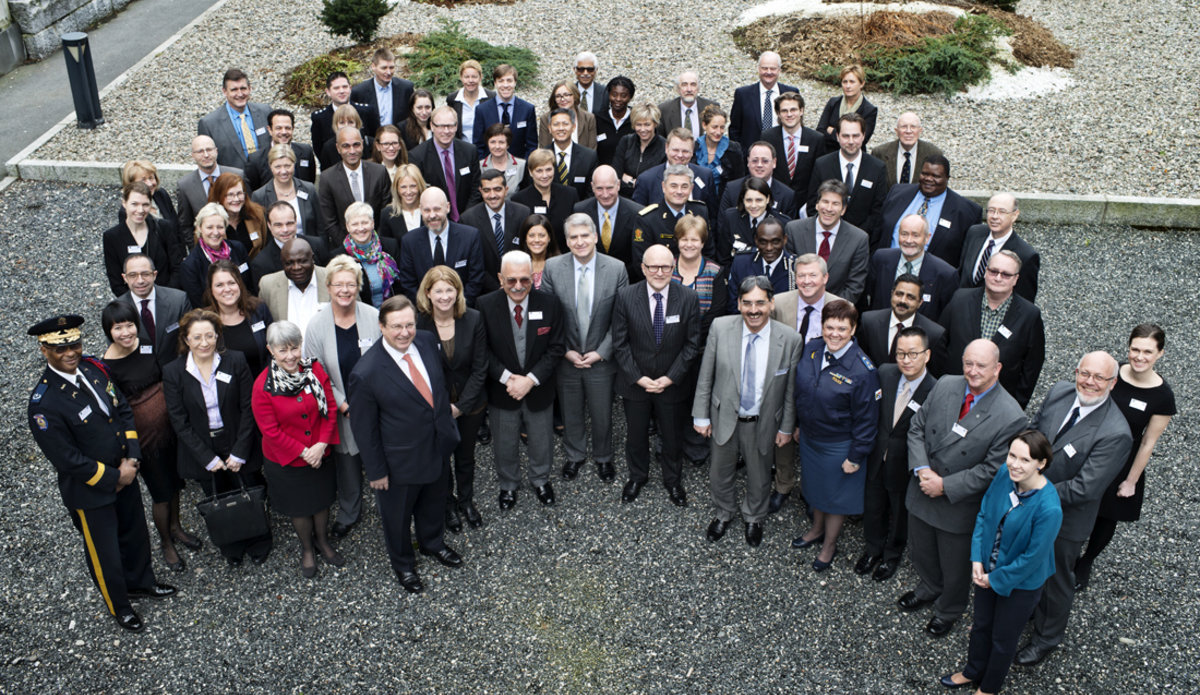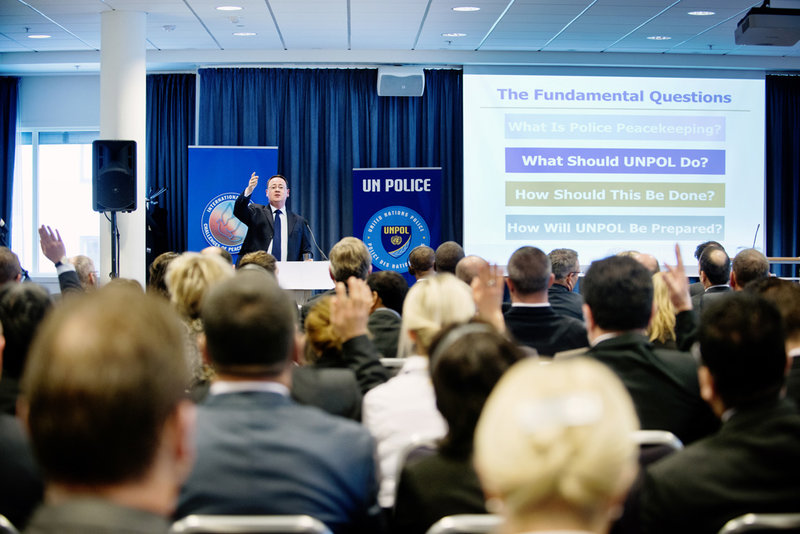Since 2003, almost all new peacekeeping mission mandates have included police capacity-building and development.
To develop the Guidelines, the United Nations, Norwegian Institute of International Affairs and the Challenges Forum co-organised a thematic consultation in Oslo, Norway, in March 2014 which brought together more than 100 experts from Member States, regional and subregional organisations, academia and think tanks to discuss what police capacity-building and development entails.
The Guidelines emphasise that police capacity-building and development is a long-term effort that must reach all levels of an institution, from individual police personnel, to groups or units of individuals within an organisation and whole institutions. For each level, the Guidelines refine the five key areas of support around which police capacity-building and development activities—including the provision of material support; training initiatives; monitoring, advising and mentoring; and the strengthening of accountability and oversight—should be based. They will enable the United Nations police to better design, implement, monitor and evaluate police capacity-building and development projects and programmes. In practice, the Guidelines will help police components determine which capacity-building and development activities, areas and training objectives to prioritise.
To download the Guidelines Police Capacity-Building and Development, click here.


